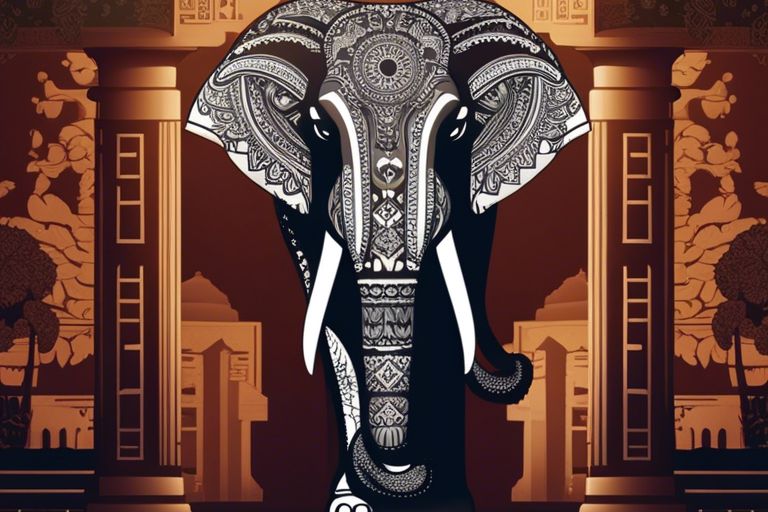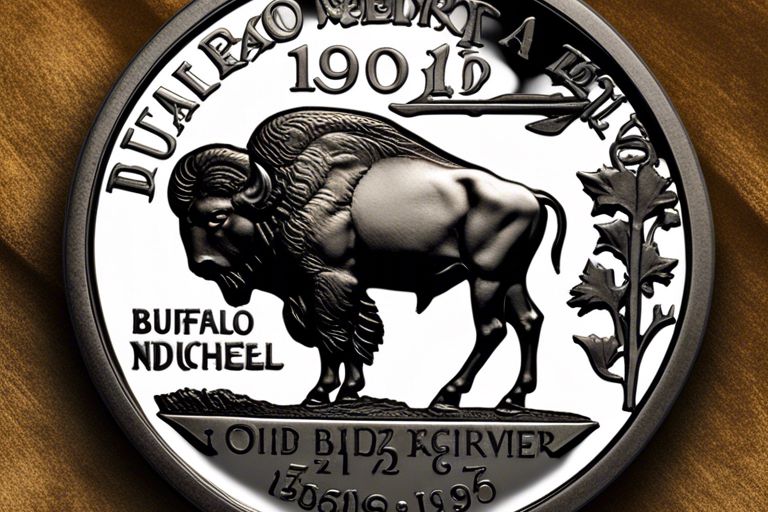As a symbol, the elephant represents strength, wisdom, and good luck in various cultures and spiritual traditions. In Hinduism, the elephant-headed god Ganesha is revered as the remover of obstacles and the god of new beginnings, while in Buddhism, the elephant is a symbol of mental strength and power. In African cultures, elephants are seen as a symbol of protection and good fortune, while in Western countries, they are often associated with perseverance and loyalty. By understanding the cultural and spiritual meanings of the elephant, we can gain a deeper appreciation for its significance in art, religion, and folklore around the world. Join me as I explore the fascinating and multifaceted symbolism of the elephant in different cultures and spiritual traditions.
Key Takeaways:
- Strength and Power: Elephants symbolize strength, power, and authority in many cultures, due to their massive size and formidable presence.
- Wisdom and Intelligence: In spiritual contexts, elephants are often associated with wisdom, intelligence, and knowledge, as they are revered for their problem-solving abilities and strong social bonds.
- Good Luck and Prosperity: In many Eastern cultures, elephants are considered to bring good luck, prosperity, and protection, especially when depicted with their trunks raised.
- Family and Community: Elephants symbolize family and community in many societies, due to their close-knit social structures and strong bonds between members of their herds.
- Endurance and Longevity: Elephants symbolize endurance, resilience, and longevity, as they are known for their ability to withstand adversity and for their long lifespans in the wild.

The Cultural Symbolism of Elephants
A symbol of power, wisdom, and good luck, the elephant holds significant cultural symbolism in various societies around the world. Its large stature and gentle nature have led to its portrayal as a revered and respected creature in many cultures.
In Hinduism
In Hinduism, the elephant is closely associated with the deity Ganesha, the remover of obstacles and the god of beginnings. Ganesha, depicted with an elephant head, is revered as the god of wisdom, success, and good luck. A common belief is that keeping an elephant figurine or idol in the house brings good fortune and protection to the family.
In Buddhism
In Buddhism, the elephant is a symbol of mental strength, as well as responsibility and steadiness. The story of Buddha’s mother dreaming of a white elephant before giving birth to him symbolizes the purity and strength of his teachings. Additionally, the concept of ‘elephant mind’ in Buddhist philosophy signifies the ability to remember and stay grounded in the present moment.
In African and Indian Folklore
In African and Indian folklore, the elephant is often portrayed as a creature of great wisdom, strength, and endurance. It is seen as a symbol of power and royalty, often associated with leadership and protection. In some African cultures, the elephant is considered a totem animal, and its tusks and trunk are valued for their protective and healing properties.
Understanding the cultural symbolism of elephants provides insight into the rich tapestry of beliefs and traditions that have been woven around these magnificent animals. Whether in Hinduism, Buddhism, or African and Indian folklore, the elephant’s representation as a symbol of power, wisdom, and good luck remains deeply ingrained in the hearts and minds of people around the world. Its revered status is a testament to the enduring impact of these majestic creatures on human consciousness. The elephant’s cultural significance transcends geographical and religious boundaries, symbolizing positive attributes that are universally admired and respected.
The Spiritual Significance of Elephants
Obviously, elephants have a rich spiritual significance in various cultures and religions around the world. Their symbolism is often associated with important spiritual values and beliefs.
Wisdom and Intelligence
Elephants are revered for their wisdom and intelligence in many spiritual traditions. They are known for their exceptional memory, problem-solving abilities, and social intelligence. In Hinduism, the elephant-headed deity Ganesha is revered as the remover of obstacles and the god of wisdom. In Buddhism, the white elephant is a symbol of mental strength and a vehicle of the Buddha. Their remarkable cognitive abilities and gentle nature make them a powerful symbol of wisdom and intelligence.
Strength and Power
The immense physical strength and power of elephants symbolize resilience, endurance, and invincibility in many spiritual beliefs. They are often associated with overcoming obstacles and challenges, as well as the ability to protect and defend. In African folklore, the elephant is a symbol of strength and power, often portrayed as a leader and protector of the animal kingdom. The sheer size and might of these majestic creatures make them a powerful symbol of strength and power.
Protection and Good Luck
Elephants are considered as symbols of protection and good luck in many cultures. In Asian traditions, the elephant with its trunk raised is believed to bring good fortune and prosperity. In Feng Shui, the elephant is a symbol of protection and stability, and is often used to ward off negative energy. The Hindu god of good fortune, Ganesh, is often depicted with an elephant head, representing blessings and protection. The enduring symbol of protection and good luck associated with elephants makes them highly revered in spiritual practices.
The Role of Elephants in Modern Society
After centuries of being revered for their symbolism and used for various purposes, elephants now play a significant role in modern society. In many cultures, elephants continue to be seen as a symbol of wisdom, strength, and good luck. They are also respected for their intelligence and gentle nature. In the spiritual realm, elephants are considered to be the embodiment of power, sovereignty, and auspiciousness. You can learn more about Elephant Meaning & Symbolism & the Elephant Spirit Animal in modern society.
Conservation Efforts
Conservation efforts for elephants have become increasingly important as their population continues to decline. With the threat of habitat loss, poaching, and human-wildlife conflict, there is an urgent need to protect these magnificent creatures. Organizations and governments around the world are working tirelessly to preserve elephant habitats and combat illegal poaching. It’s crucial to support these conservation efforts to ensure the survival of this iconic species.
Elephant Symbolism in Art and Literature
Throughout history, elephants have been a popular subject in art and literature, often symbolizing various attributes such as strength, loyalty, and intelligence. They have been depicted in paintings, sculptures, and written works as powerful and majestic beings, inspiring awe and admiration. Their symbolism in art and literature serves as a reminder of the profound impact they have had on human culture and creativity.

Conclusion
With these considerations, it’s clear that elephants hold profound cultural and spiritual meanings across various societies. From wisdom and loyalty to strength and endurance, these majestic creatures symbolize a wide range of attributes that are revered and respected. Whether it’s in Hindu and Buddhist traditions or African folklore, the elephant’s symbolism continues to captivate and inspire people around the world. As we continue to learn about the significance of elephants in different cultures, we gain a deeper appreciation for the interconnectedness of humanity and the natural world. So, the next time you see an elephant, remember the rich symbolism and spiritual significance it embodies.
FAQ
Q: What does an elephant symbolize in different cultures?
A: In various cultures, elephants symbolize strength, power, wisdom, and longevity. Additionally, they are also associated with good luck, prosperity, and protection.
Q: What does an elephant symbolize in spiritual beliefs?
A: In spiritual beliefs, elephants symbolize inner strength, resilience, and the ability to overcome obstacles. They are seen as a representation of the divine and are often associated with the qualities of patience and compassion.
Q: What is the significance of the elephant in Hinduism and Buddhism?
A: In Hinduism, the elephant-headed god Ganesha is revered as the remover of obstacles, the patron of arts and sciences, and the deva of intellect and wisdom. In Buddhism, elephants are considered sacred animals and are associated with the Buddha himself. They symbolize mental strength, responsibility, and the ability to focus the mind on spiritual pursuits.
Q: How are elephants represented in African culture?
A: In many African cultures, elephants are highly regarded for their leadership, intelligence, and loyalty to their herds. Elephants are also considered symbols of family, community, and the interconnectedness of all living beings.
Q: Are there any negative connotations associated with the symbolism of elephants?
A: While elephants are generally viewed positively in many cultures, in some traditions they can also symbolize stubbornness or the need to let go of old beliefs and patterns. Additionally, in certain contexts, the image of an elephant may be associated with aggression or dominance. However, these interpretations are not universal and depend on specific cultural or individual perspectives.








Leave a comment